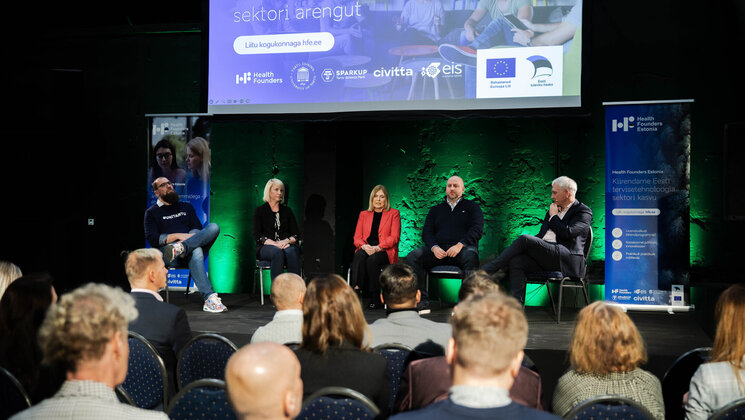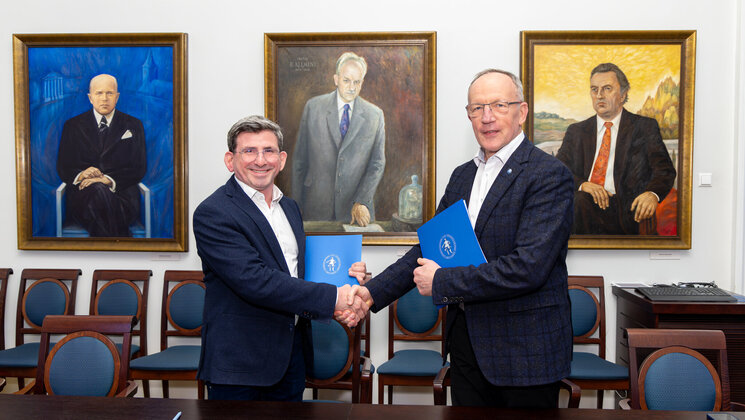As last year, University of Tartu supports nine scientific discoveries with business potential

The University of Tartu Feasibility Fund received a record number of 53 grant applications, nine of which will receive funding in the total amount of 315,000 euros.
“The Feasibility Fund grant has proven that the university has a lot of good ideas for creating research-intensive businesses, evidenced by this year’s record number of applications. It is also great to see that researchers are thinking about taking their research to business in all faculties of the university, so the ideas are as diverse as developing the treatment of brain diseases, bringing fluorine-free ski wax to market, creating an app for assessing personality traits and introducing traditional musical instruments virtually to the world,” said the university’s Head of Entrepreneurship Mihkel Tammo.
To determine the business potential, the applications underwent several assessment rounds. Field experts assessed the scientific aspects of the projects, the underlying idea and the possibilities for development. Then, the experts at the UT Centre for Entrepreneurship and Innovation assessed the likelihood of the development of the project leading to the establishment of a spin-off company or large-scale business cooperation.
As in previous years, the most applications – 28 – came from the Faculty of Science and Technology. Eleven applications came from the Faculty of Medicine, eight from the Faculty of Arts and Humanities and six from the Faculty of Social Sciences.
The Feasibility Fund grant helps to accelerate the implementation of research in society and the economy. For the development of one idea, a Feasibility Fund grant of up to 35,000 euros can be obtained from the university’s development fund. This measure supports research projects at a very early stage when the investment risk for external investors is still too high. Since establishing the Feasibility Fund grant in 2019, the university has supported projects with more than 2 million euros.
Supported projects in brief
Optimising incretin analogue therapy to reduce gastrointestinal side effects
The project investigates innovative solutions for the treatment of diabetes and obesity – incretin analogues – to alleviate gastrointestinal side effects in order to improve treatment efficacy and patient’s quality of life.
Project manager: Mario Plaas, Professor in Translational Medicine
Smart lipid nanoparticles for RNA transport in the brain
The project develops RNA-based lipid nanoparticles that can cross the blood-brain barrier and offer new opportunities for the precision treatment of brain diseases, including tumours and neurodegenerative diseases.
Project manager: Tambet Teesalu, Professor of Nanomedicine
Virtual traditional musical instruments for the world’s music market
The project helps to bring the special sound of Estonian traditional instruments virtually to the international music market, offering new creative opportunities for music creators.
Project manager: Janar Paeglis, Lecturer in Viljandi Culture Academy
Multivariate assessment of personality traits in a digital app
The research group develops an app that gives users in-depth feedback on their personality, helping them make better-informed decisions in their professional and personal lives.
Project manager: Kätlin Anni, Junior Lecturer in Clinical Psychology, Research Fellow in Welfare Research
Solar production forecasting model
The project develops more accurate forecasting models for solar farm operators, helping to reduce the costs related to electricity market imbalance and improve the efficiency of renewable energy use.
Project manager: Kristjan Vassil, Professor of Applied Technology Studies
Membrane protein nanoparticles based on baculoviruses
The research group develops technology to facilitate the production and use of membrane proteins in biomedical studies, offering new opportunities for drug development.
Project manager: Ago Rinken, Professor of Bioorganic Chemistry
Artificial intelligence-guided robotic endoscope
The project develops an artificial intelligence-guided robotic endoscope to increase the accuracy and safety of surgical procedures and reduce the risks associated with surgery.
Project manager: Ritesh Soni, Research Fellow in Microfabrication
Development of fluorine-free ski wax
The project develops sustainable ski waxes that meet international environmental standards and offer excellent gliding properties.
Project manager: Janno Torop, Associate Professor of Materials Engineering
Environmentally friendly silicone foam-based biofilm carriers for wastewater treatment
The project develops new sustainable biocarriers for wastewater treatment to reduce the spread of microplastics.
Project manager: Ingrid Rebane, Research Fellow in Sustainable Materials




